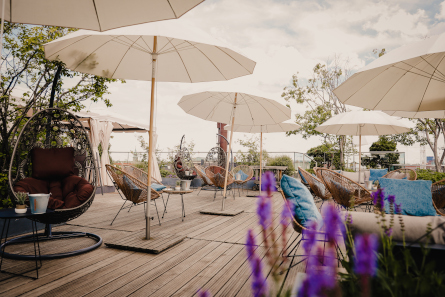Rigoletto♪, G. Verdi, the 7.
Fidelio♪, L. van Beethoven, the 8.
_445x297(CosmoPark).jpg)
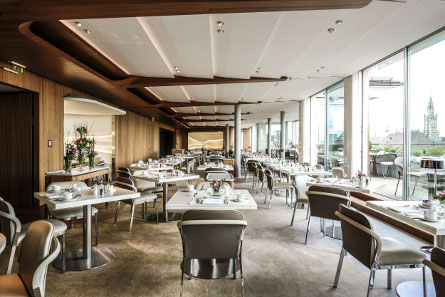
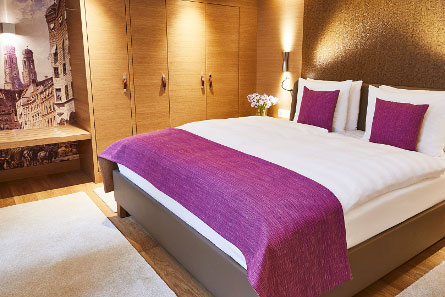
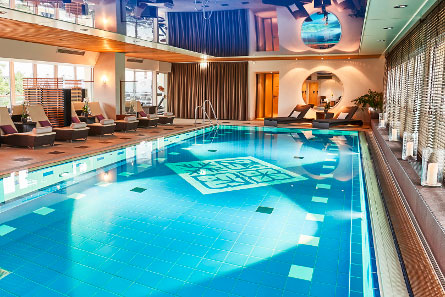
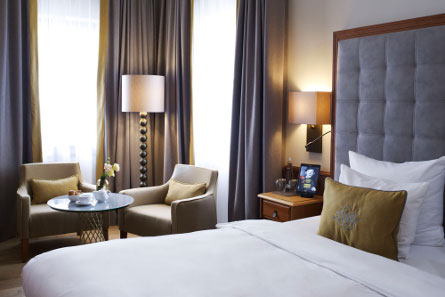
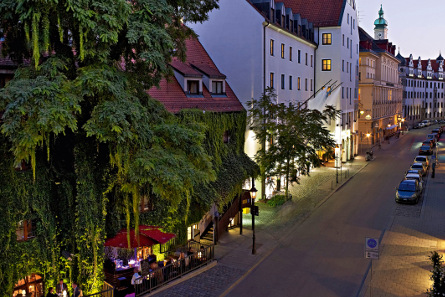

from Friday 6 to Monday 9 March 2026, 3 nights
Arrangement 19
Arrangement 19
Rigoletto
G. Verdi
G. Verdi
As already in his Luisa Miller, Verdi’s eponymous figure Rigoletto is not a man of rank, but a representative of the people, in this case a malformed court jester. The composer devoted himself with the greatest care to the psychological shaping of his hero. This may have been due to the fact that the Venetian censorship had initially banned the opera for insulting majesty, and that it could only be performed on stage after numerous changes. Since the libretto was changed several times and the scenic structure was also shaken, the unity of the play had to be preserved and restored in other ways. Thus Giuseppe Verdi (1813-1901) transposed it into the personal, tragic conflict of the Rigoletto, which is decisive for the plot and the connection between the characters. The composer succeeded excellently in combining recitatives, arias and duets into a higher musical unity and in dissolving the old structure of the number opera. He himself even regarded his work as revolutionary.
After the music had been criticized as too shallow and superficial by contemporaries, especially by followers of Richard Wagner, only Igor Stravinsky was able to overturn this verdict: He praised the ingenuity of the opera. Today, "Rigoletto" is part of the standard repertoire of every opera house, and the popular arias "La donna è mobile" or "Caro nome", which are extremely demanding to sing, are often performed in song recitals in isolation.
After the music had been criticized as too shallow and superficial by contemporaries, especially by followers of Richard Wagner, only Igor Stravinsky was able to overturn this verdict: He praised the ingenuity of the opera. Today, "Rigoletto" is part of the standard repertoire of every opera house, and the popular arias "La donna è mobile" or "Caro nome", which are extremely demanding to sing, are often performed in song recitals in isolation.
Maurizio Benini - Barbara Wysocka
Serena Sáenz, Elmina Hasan, Igor Golovatenko, Bekhzod Davronov, Riccardo Fassi
Staatsoper
Fidelio
L. van Beethoven
L. van Beethoven
Ludwig van Beethoven’s (1770-1827) only opera “Fidelio” is a lyrical drama in two acts, on whose original score the composer worked between 1803 and 1805. Since the work literally fell through with the audience at its premiere at the Theater an der Wien, and since the revised version (with the changed title “Leonore”) was also only moderately received at the same location, Beethoven rewrote it a third time. Today, this last version is usually performed all over the world.
The number opera with spoken dialogues is based on a commission from Peter Freiherr von Braun, who was at that time the director of the Theater an der Wien. Beethoven’s original idea was to adapt a model by Emanuel Schikaneder, “Vestas Feuer”. But ultimately he decided to write a “rescue and liberation opera”, whose genre was very successful in Europe at the end of the 18th and also still at the beginning of the 19th century. Here, Beethoven composed a monument to the principles of political freedom, justice and brotherhood, which are directed against all tyranny, by rescuing an innocent hero from extreme hardship.
In more recent times, the opera has been performed on special occasions and has been staged in some cases in an explosive manner. Among other events, the Vienna State Opera, which was bombed in World War II, was symbolically reopened with this production in 1955, expressing Beethoven’s high human ideals and ethical vision.
The number opera with spoken dialogues is based on a commission from Peter Freiherr von Braun, who was at that time the director of the Theater an der Wien. Beethoven’s original idea was to adapt a model by Emanuel Schikaneder, “Vestas Feuer”. But ultimately he decided to write a “rescue and liberation opera”, whose genre was very successful in Europe at the end of the 18th and also still at the beginning of the 19th century. Here, Beethoven composed a monument to the principles of political freedom, justice and brotherhood, which are directed against all tyranny, by rescuing an innocent hero from extreme hardship.
In more recent times, the opera has been performed on special occasions and has been staged in some cases in an explosive manner. Among other events, the Vienna State Opera, which was bombed in World War II, was symbolically reopened with this production in 1955, expressing Beethoven’s high human ideals and ethical vision.
Yoel Gamzou - Calixto Bieito
Johanni van Oostrum, Mirjam Mesak, Benjamin Bruns, Josef Wagner,
René Pape♪
René Pape
René Pape is a German opera singer born September 4, 1964 in Dresden. René Pape began studying music and singing at the age of 8 in the boys’ choir of the Holy Cross Church in Dresden. Then René Pape continued his apprenticeship at the Dresden Conservatory. René Pape made his debut at the Berlin Staatsoper Unter den Linden in 1988, and gained dazzling international recognition in 1991, when Sir Georg Solti gave him the role of Sarastro in a production of The Magic Flute, a role he sang again. the same year at La Scala in Milan under the direction of the same conductor. René Pape performs regularly in major opera houses, concert halls and symphony orchestras around the world, as well as opera festivals such as Bayreuth, Glyndebourne, Lucerne, Orange, Salzburg, where he is conducted by the greatest conductors of orchestra.
Staatsoper
Hotel informations for Munich 19
Rosewood Munich *****
Newly opened at the end of 2023, luxury hotel Rosewood Munich ***** is ideally located in the heart of Munich’s old town. Spread over two adjoining historic buildings - the entrance still bears witness to the past as Königlich Bayerische Bank -, the hotel has a total of 132 spacious, elegant rooms and suites. Custom-made furnishings and Bavarian style elements as well as a marble bathroom with underfloor heating ensure a cozy atmosphere. Culinary delights from à la carte breakfast to dinner await you in the Brasserie Cuvilliés with innovative Alpine gourmet cuisine, while the Jazz Bar Montez invites you to round off the day in style. The State Opera is just a 5-minute walk away.
_445x297(CosmoPark).jpg)

Bayerischer Hof *****
Since 1841, the luxurious Hotel Bayerischer Hof ***** has welcomed its guests on Promenadeplatz, just a few minutes’ walk from the State Opera. The comfortable rooms are decorated in historical-classical style up to subtle colours in the modern, newly renovated Cosmo Park rooms. Start with a champagne breakfast above the rooftops of Munich and enjoy Bavarian and Far Eastern specialities or fine gourmet cuisine in the bars and restaurants. Whetherroof terrace, SPA, cinema, boutiques or hairdresser - the hotel has all the amenities you need to spend an entertaining day.


Vier Jahreszeiten Kempinski *****
The Vier Jahreszeiten hotel ***** is, since 1858, an establishment of long tradition. It is located in the city centre on the Maximilianstrasse and only two minutes away on foot from the Opera. Offering 303 rooms and 62 luxurious suites, there are also numerous facilities to take advantage of. Its restaurant, Schwarzreiter, enjoys an excellent reputation and it is particularly appreciated after an evening at the Opera.


Platzl Hotel ****
The Platzl hotel **** welcomes you in a charming atmosphere in the heart of Munich, only a few minutes away from the Opera. Its 167 rooms are comfortably equipped and tastefully decorated. The hotel also offers a restaurant of typical Munich ambience in a vaulted room as well as a health spa with sauna and Turkish bath.
All-inclusive price per person for Munich 19
Single room/ night
Rosewood Munich
On request
Auf Anfrage
Bayerischer Hof
On request
140-250,- Euro
Vier Jahreszeiten Kempinski
On request
130-240,- Euro
Platzl Hotel
On request
90-200,- Euro

The price includes
Overnights including breakfast, good opera tickets






_445x297.jpg)
